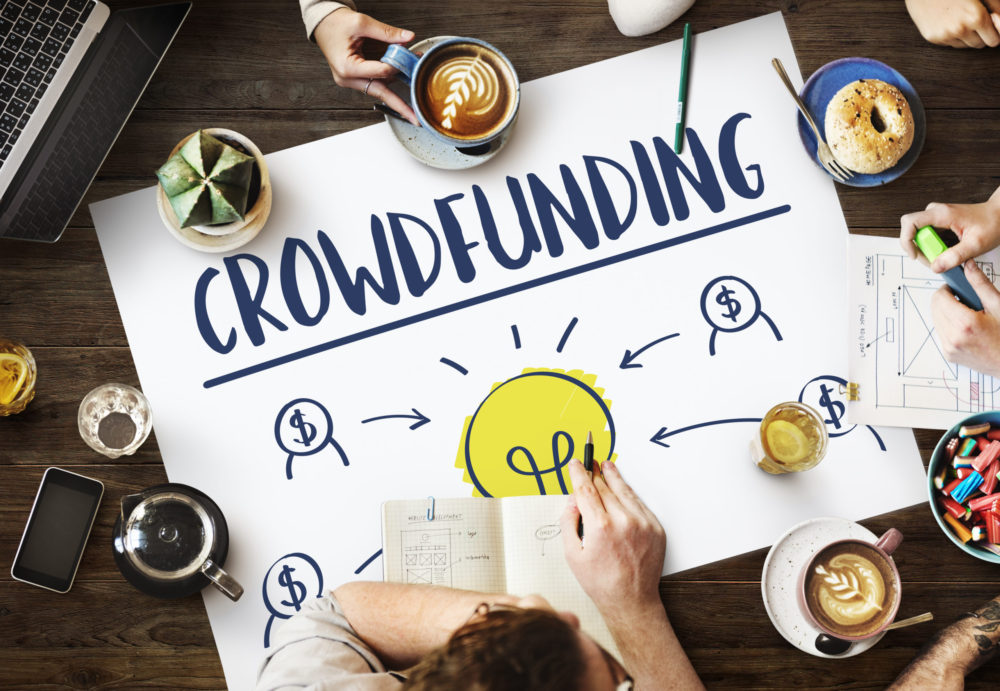In this interview Andrea Costantino, Head of Deal Flow at Two Hundred, tells us about the impact of the Covid-19 emergency on the investment world, with a specific focus on equity crowdfunding. We will discover the main consequences of the emergency from the point of view of the 200Crowd platform, the measures taken to manage the situation, and the future of the world of startups and investments during and after the crisis.
Andrea Costantino graduated from the Catholic University of Milan in Economics and Finance with a double degree in Innovation and Entrepreneurship from the Politecnico di Milano and the Solvay School in Brussels. He joined Two Hundred as Business Analyst, and today he is Head of Deal Flow. Two Hundred is a leading fintech company in Italy that facilitates the meeting between investors and companies that need capital. Specifically, the 200Crowd.com platform represents a reference point for equity crowdfunding in Italy. By virtue of its role, it certainly has a expert point of view on the Italian startup scene.
How does an equity crowdfunding platform work?
Equity crowdfunding platforms connect two environments: the investors’ environment and the startup environment. Companies looking for capital, both startups and SMEs, can present their project to potential new investors through the platform. Investors can be institutional investors, funds, business angels or crowd investors, who usually invest between €500 and €2,500 in a project.
What were the main consequences of the emergency and what were the problems you could observe?
Starting with investors, crowd investors have started to review their priorities due to the current situation. They are investors who, before the crisis, were investing in potential startups, often because they knew the market or the industry, or perhaps had direct personal knowledge of the company. Today, confined at home, they have to review the management of their assets and control their expenses, because unfortunately the crisis has impacted the financial situation of many people. The investor-side landscape has changed because of this redefinition of priorities.
Startups have also been affected. They continue to have the fixed costs they had before, mainly due to personnel costs, often without being able to maintain the same growth in turnover. The main challenge for startups is to understand what costs can be reduced or reduced strategically, trying to maintain the same turnover as much as possible and avoid liquidity problems in the short to medium term.
We did an internal review with Two Hundred’s startups to discuss a strategy to respond to this situation in a timely manner. Fortunately, among the startups we are in contact with, all of them have chosen to continue working with their employees to address this situation, adopting cost engineering solutions and reducing costs as much as possible. For example, many have reviewed their marketing expenses, while still trying to maintain a good relationship with their current clients, and working on the acquisition of new clients.
What was the impact on the platform? Have you noticed differences in the in-flow of projects? Which projects are coming to you during this period? How do you evaluate them?
As far as the platform itself is concerned, I would stress the importance of the psychological aspect, which plays a key role in crowdfunding activities. The forced lockdown throughout Italy has led to a slowdown in the in-flow of startups we were used to, but it has increased the number of new startups we had seen before. For example, we have had requests for funding from startups that want to engage in vaccine development or health facilitation activities. However, it is important to do a good skimming of projects to see which ones can make a real contribution to research and which ones just want to take advantage of the opportunity of the moment. Given our different focus and expertise, we have preferred to focus on areas in which we are more specialised: the digital sector, the fintech sector, and everything that falls within our standard assessment parameters.
Always keeping in mind the strong psychological impact, in the last few weeks we have seen an increase in the number of startups applying for funding, although not at the pre-emergence level. I think that this trend could continue in the coming months, also to face the possible liquidity problems of the startups.
Which projects have you seen benefit most in terms of funding from the current situation? Which projects have suffered?
Let’s assume that startups are used to living in an “emergency” situation: they always operate in a ‘VUCA’ environment of volatility, uncertainty, complexity and ambiguity. Startups that nowadays manage to react well to the situation are those that perceive what real needs have arisen and consequently manage to adapt certain lines of their business, relying on a good team.
Among those who have benefited most from this situation there are certainly startups or small e-commerce and delivery companies. Regardless of the sector, precisely because they are small and agile, startups are able to resist even in difficult times, finding new opportunities. Take for example the Nausdream campaign, an innovative startup in the tourism sector. Although tourism is one of the sectors that has been most affected by this situation, Nausdream has managed to close the gap. This is a good sign, it shows that investors who turn to the private capital market and invest in the real economy have not considered the impact of the fluctuations that have occurred, for example in the stock markets, but have instead thought with a long-term vision. Even if normality is unlikely to return, we should still get used to a new idea of normality in which many sectors will bounce back. Investors have looked a little further today.
Are you expecting institutional actions to support the Italian startup ecosystem? What are the most relevant and urgent measures that need to be implemented in the short term?
Any institutional help is almost necessary to avoid destroying all the last stages reached and the steps in the future that have been made in recent times in the field of innovation and development of the startup ecosystem. There are countries, like France, Germany or the UK, where there is a lot of interest and state support to sustain innovation and startups. Surely an immediate response is needed now, especially for the liquidity problems that companies and startups have experienced or are about to experience.
How will the Italian equity crowdfunding and startups landscape change?
What we can do is to monitor from week to week how the situation evolves. What we need to do is to make sure that companies safely resume operations. As we have seen in China, to restart involves large investments by companies on the security processes of personnel. I imagine that the recovery will be quite slow, partly due to the psychological consequences that this situation has brought about and will bring about. Historically, every time we talk about changing the habits of consumers and people, recovery is slower and slower.
Although plainly a negative situation, what are the main lessons to be learned from a situation like the present one?
I believe that in this period it has emerged how important it is that medium-sized and large companies also adopt a lean approach, if they have the opportunity and their business allows it, and a startup mentality. This is not so much in terms of the possibility of changing the business, but in order to be agile and be able to respond promptly to emergencies, also taking advantage of the opportunities they can offer.
Finally, I would like to highlight the process of forced digitisation of many Italian companies in this period. Unfortunately for many companies in Italy that did not consider digitisation as one of the main issues to be addressed, the impact was considerable and took them unprepared. Once again, we had to arrive at an emergency situation so that everyone understood the importance of digitising and adopting innovative systems.

